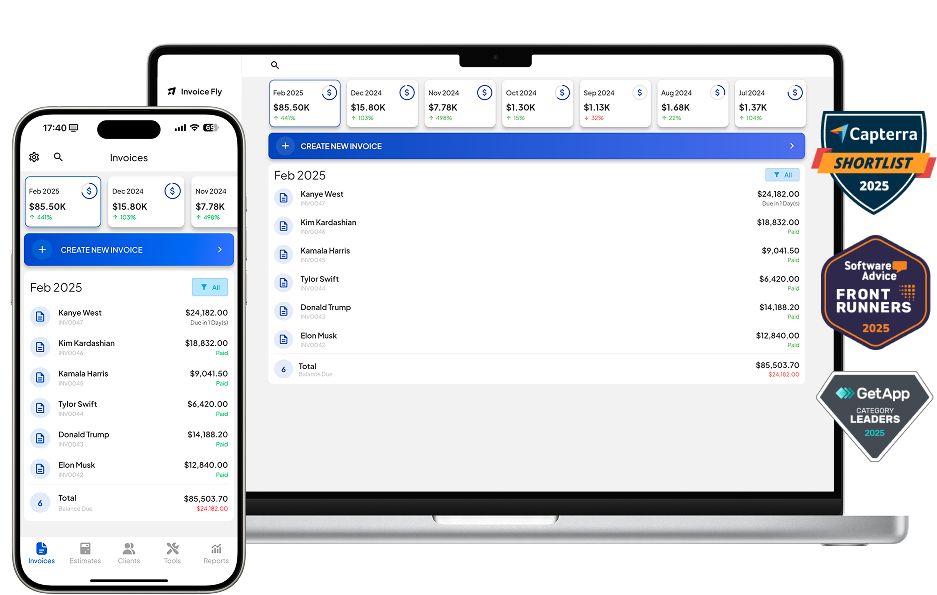- Home
- »
- Glossary Of Terms
- »
- Resale Certificate
What is a Resale Certificate?
For businesses that buy products to resell, a resale certificate is an essential document that can significantly impact your bottom line. Understanding how to properly obtain, manage, and use resale certificates can help your business save thousands of dollars in unnecessary taxes while ensuring compliance with state regulations.
A resale certificate (sometimes called a reseller permit, reseller license, or tax exemption certificate) is an official document issued by a state’s tax authority that allows businesses to purchase goods for resale without paying sales tax.
When a business presents a valid resale certificate to a supplier, it certifies that the purchased items are intended for resale, and the business will collect and remit sales tax when selling to the end customer.
The fundamental purpose is to prevent double taxation in the supply chain. Without this certificate, the same product would be taxed multiple times before reaching the end consumer.

Key Components of a
Resale Certificate
- Business name, address, and contact information
- Business owner’s name and contact details
- State tax ID number or reseller permit number
- Federal Employer Identification Number (EIN)
- Description of the business and types of products sold
- Signature of an authorized representative
- Expiration date (in states where certificates are not perpetual)
Types of
Resale Certificates
| Resales Certificate Type | Coverage | Typical Validity | Best For |
|---|---|---|---|
| Single-state | One state only | 1-5 years (varies by state) | Businesses operating in one state |
| Blanket | Multiple purchases from same vendor | Often 1 year | Frequent purchases from same suppliers |
| Multi-state | Multiple participating states | Varies by agreement | Businesses with regional operations |
| Streamlined Sales Tax (SST) Certificate | 24 participating states | Varies by state | Multi-state online retailers |
Why Are They Important
For Your Business?
Properly managing your it’s process is not just an administrative task—it directly impacts your business’s financial health and legal compliance.
Cost Savings Impact
The most immediate benefit is the elimination of sales tax on wholesale purchases. Consider a business with $500,000 in annual inventory purchases:
- Without it: $500,000 × 8% (average sales tax) = $40,000 in sales tax
- With it: $0 in sales tax on those purchases
This $40,000 represents direct savings that improve your cash flow and profit margins.
Legal and Audit Protection
Improper use or failure to maintain proper documentation can result in:
- Back taxes owed with interest
- Penalties ranging from 5% to 25% of unpaid taxes
- Revocation of your privileges
- Increased likelihood of future tax audits
Key Areas of
Resale Certificate Management
1. Application and Acquisition Process
- Registering for a sales tax permit with your state’s department of revenue
- Completing a resale certificate application
- Providing documentation about your business operations
- Paying applicable registration fees
- Renewing your certificate according to state requirements
2. Proper Documentation and Record-Keeping
Maintaining comprehensive records is crucial for audit protection:
- Keep digital and physical copies
- Document each transaction where the certificate was used
- Store supplier acknowledgments of your certificate
- Maintain records of tax-exempt purchases
- Create a system for tracking certificate renewal dates
3. Multi-State Compliance
- Different states have different resale certificate requirements
- Some states accept out-of-state certificates, while others don’t
- Nexus rules determine where you need certificates
- Some states participate in reciprocal certificate recognition programs
4. Integration with Invoicing Software
Modern invoicing solutions like InvoiceFly can help manage resale certificate information:
- Store digital copies of certificates
- Track expiration dates and set renewal reminders
- Flag tax-exempt transactions
- Generate reports for tax compliance
- Attach certificate information to vendor records
Benefits of Efficient
Resale Certificate Management
For Retailers and Wholesalers
- Tax Liability Reduction: Using a valid resale certificate eliminates the need to pay sales tax on goods purchased for resale, directly improving your profit margins and cash flow position.
- Streamlined Supplier Relationships: Having well-organized documentation makes transactions with suppliers smoother and builds credibility as a professional business partner.
- Audit Protection: A systematic approach creates a clear audit trail that can protect your business during tax reviews and examinations.
- Competitive Pricing Advantage: The tax savings from proper resale certificate use can allow you to offer more competitive pricing or invest in business growth.
For Your Suppliers
- Simplified Compliance: Clear documentation of your resale certificate makes it easier for suppliers to maintain their tax records
- Reduced Liability: Properly documented certificates protect suppliers from potential tax collection requirements
- Faster Transaction Processing: Having certificate information on file speeds up purchasing processes
- Long-term Relationship Building: Professional certificate management signals that you’re a reliable business partner
How to Measure Performance
Key Performance Indicators (KPIs)
To evaluate the effectiveness of your resale certificate management, track these metrics:
- Tax Savings Rate: Total sales tax avoided through certificate use vs. potential tax liability
- Certificate Compliance Rate: Percentage of purchases properly covered by valid certificates
- Renewal Efficiency: Percentage of certificates renewed before expiration
- Audit Readiness Score: Completeness of certificate documentation for potential audits
- Processing Time: Average time to process and implement new certificates
Best Practices for Resale Certificate Management
- Centralized Certificate Repository: Create a single, secure location (physical or digital) where all resale certificate documentation is stored and easily accessible.
- Regular Certificate Audits: Conduct quarterly reviews of your resale certificate status, checking for expirations, changes in business operations, or new state requirements.
- Automated Tracking Systems: Implement software solutions that can automatically track certificate expirations and usage across your business.
- Staff Training: Ensure that all purchasing, accounting, and sales staff understand the importance of compliance and proper documentation procedures.
- Integration with Tax Planning: Include resale certificate management in your broader tax strategy, working with tax professionals to optimize your approach.
FAQs about
Resale Certificates
If a supplier refuses it, first ensure your certificate is current, complete, and relevant for the jurisdiction of the transaction. Some suppliers have strict policies requiring additional verification steps before accepting certificates.
Provide a cover letter explaining your tax-exempt status, offer to complete their specific exemption forms, and if necessary, ask to speak with their tax department rather than sales representatives.
If they still refuse, document the interaction and consider consulting with a tax professional about potential tax credit options for the sales tax paid, as you may be able to recover these costs during your tax filing.
Managing resale certificates across multiple e-commerce platforms requires a systematic approach. Create a dedicated marketplace tax compliance calendar that tracks certificate requirements and renewal dates for each platform.
Consider using specialized marketplace tax compliance software that integrates with your invoicing system to track certificate statuses. Maintain separate digital folders for each marketplace's certificate requirements and documentation.
For high-volume marketplaces, consider obtaining blanket certificates where available to reduce administrative burden. Finally, regularly review marketplace tax policy updates, as their requirements for resale certificate verification often change with little notice.
Tax authorities particularly scrutinize businesses with inconsistent resale certificate usage patterns.
Red flags include: purchasing items with your certificate that don't align with your business type (e.g., a clothing retailer buying office furniture tax-free), maintaining high ratios of tax-exempt purchases compared to reported sales, frequent rounded-number transactions, missing or incomplete certificate information in your records, and certificates with expired dates.
To minimize audit risk, conduct regular internal reviews of your certificate usage, maintain detailed purchase records that clearly tie exempt purchases to subsequent taxable sales, and implement a rigorous certificate verification process.
Following the South Dakota v. Wayfair Supreme Court decision, economic nexus laws have dramatically expanded where businesses need resale certificates.
If you exceed a state's economic nexus thresholds (typically $100,000 in sales or 200 transactions), you likely need to obtain a resale certificate in that state even without physical presence.
This creates a cascading compliance effect—once registered for sales tax in a new state, you'll need to obtain and maintain a resale certificate for wholesale purchases in that state as well.
Consider implementing automated sales tracking by state to proactively identify when you're approaching nexus thresholds, giving you time to obtain necessary certificates before compliance becomes mandatory.
Beyond the resale certificate itself, maintain a comprehensive "audit-ready" file that includes: signed supplier acknowledgments confirming receipt of your certificate, detailed purchase logs categorizing which items were purchased tax-free and their intended resale purpose, inventory records that track exempt purchases from acquisition to final sale, sales records demonstrating that tax was collected when items purchased tax-free were sold to end customers, and a certificate validation checklist showing your verification process for each certificate.
This supporting documentation creates a clear audit trail that demonstrates both the legitimacy of your tax exemption claims and your commitment to compliance.

Other Free Resources

Try Invoice Fly Today
- Send quotes & invoices in seconds
- Collect card & online payments
- Receive instant notifications
- Win more jobs

